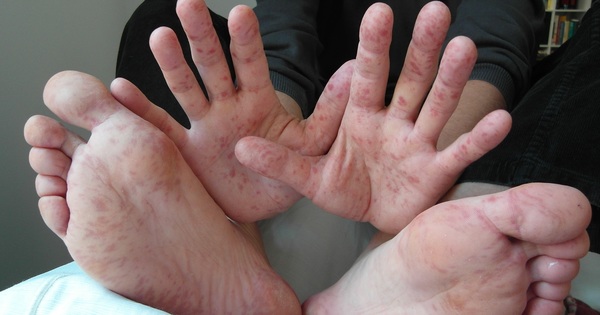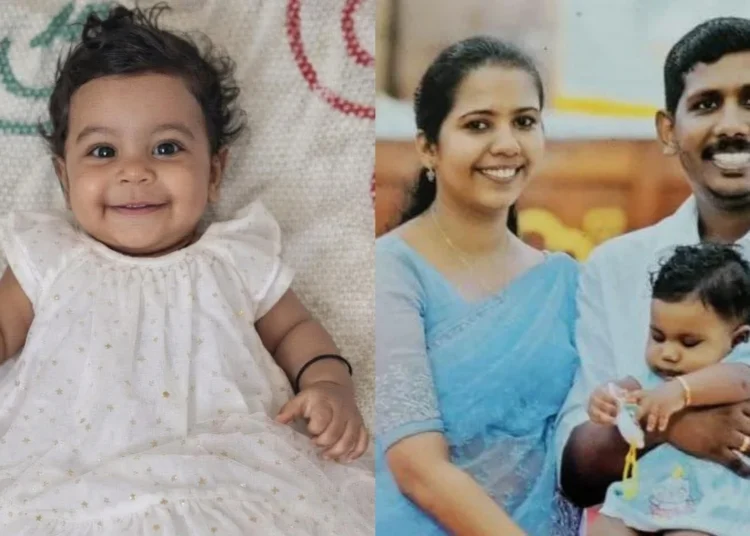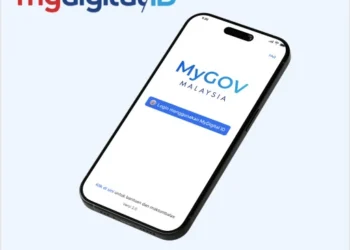The coronavirus, which has been raging for over two years, has been a huge burden on us all. The HFMD outbreak has now become a double blow for everyone. Because the cases are rapidly increasing like bush fires, every parent is worried and concerned.
Health director-general Tan Sri Dr Noor Hisham stated Malaysia has recorded 31,661 cases of HFMD which is 15 times the amount that was recorded within the same period last year.
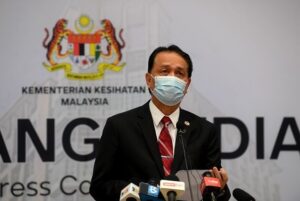
Dr Noor Hisham in a statement said 1,676 HFMD cases were recorded in the previous epidemiology week report compared to this week’s staggering 7,526 cases with a 349 per cent increase.
“In 2022, until May 14, Selangor contributed the largest number of cases compared to other states with 8,864 cases (28 per cent) followed by Kuala Lumpur & Putrajaya 4,421 cases (14 per cent), Sabah 2,650 cases (8 per cent), Perak 2,638 cases (8 per cent) and Kelantan 2,493 cases (7.9 per cent) while other states recorded around or less than 1,500 cases,” he remarked.
Dr Hisham said a total of 889 outbreaks were reported across Malaysia, identifying the three states with the most outbreaks being Kuala Lumpur and Putrajaya, with 309 outbreaks (35%) each, Selangor with 111 outbreaks (12%), and Perak with 105 outbreaks (12 per cent).
With 575 outbreaks (65%), kindergartens, nurseries, and pre-schools were the most common infection locations, followed by private houses with 305 outbreaks (34%), and daycare centres with 27 outbreaks (three per cent).
According to Health Minister Khairy Jamaluddin, parents must be able to detect early signs of the infection in order to seek treatment and, more significantly, to avoid sending their children to daycares, kindergartens, or schools where the disease may spread.
What is HFMD?
HFMD is a disease mainly caused by the Coxsackie virus A16 (CA16) and Enterovirus 71 (EV71), which spread through direct contact with nasal fluid, saliva, blisters and the faeces of those infected. The symptoms include fever, painful blister-like sores in the mouth, and rashes that may appear as blisters.
What you should do?
The following precautions should be taken by those who have children to minimise their risk of infection:
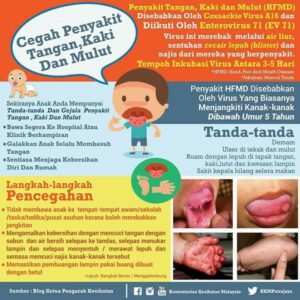
- Wash hands with soap and clean water after using the toilet, before preparing food, after changing diapers and washing children’s stools
- Advise your kids to cover their mouth and nose when coughing and sneezing
- Do not share personal items such as toothbrushes, handkerchiefs, towels, blankets, cups, forks, and spoons
- Always maintain cleanliness in homes, childcare centres, kindergartens and schools, and their surroundings;
- Regularly wash all toys belonging to your kids and surfaces of tables, chairs, and floors at least twice a day
- Take children to the nearest clinic or hospital if they have signs or symptoms of an infection
- Parents are advised not to bring children with symptoms to crowded public places such as swimming pools, markets, shopping malls, bus stations and etc
- Parents of children who show signs or symptoms of infection, refrain from sending the child to a childcare centre, nursery, kindergarten or school
- Sick children are advised to be taken to the clinic for treatment.
How to track the disease using the MySejahtera app?
Here are the steps to activate the hotspot feature in the MySejahtera application;
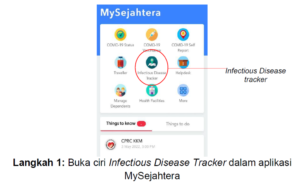
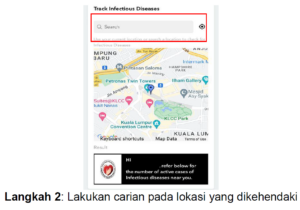
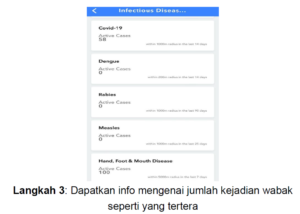
Parents, please take the necessary precautions to avoid this harmful disease from harming your children.
Stay safe and stay healthy.
Follow us on Instagram, Facebook or Telegram for more updates and breaking news.


